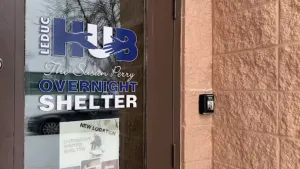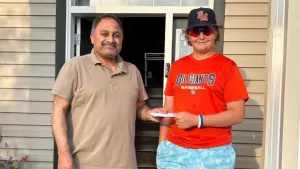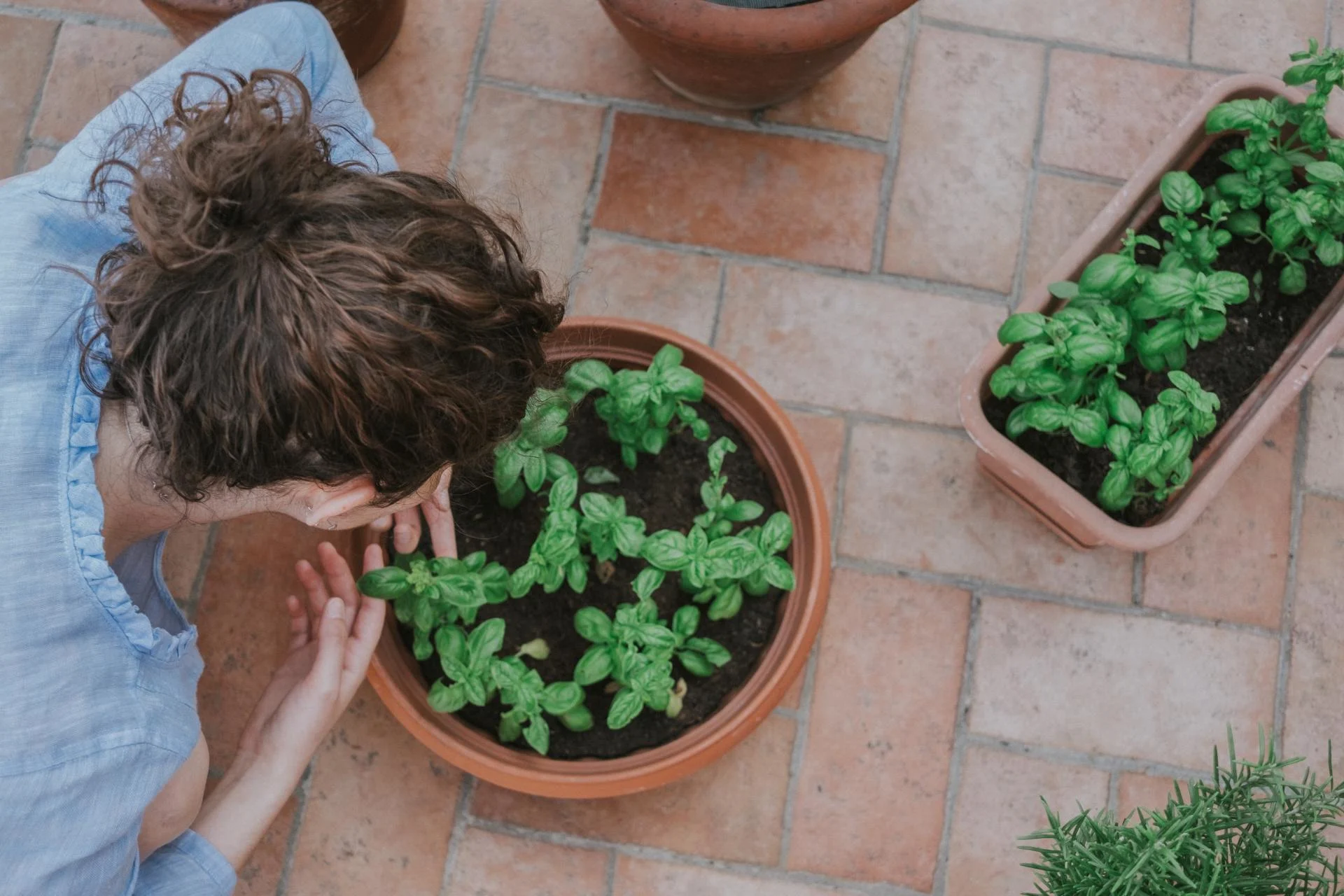
Don't have the mobility or space for a garden? Here are some tips.
There's no getting around it: Gardening can be pretty hard work.
And for people with mobility issues, those who lives in apartments, or don't have much money to spend, it also has a whole other set of challenges.
So we decided to reach out to some experts to get some advice.
Leah Collett is the garden manager at the Legacy Garden, located on 8.5 acres of land behind the Farm Centre in Charlottetown, P.E.I.

Leah Collett says the raised beds at the Legacy Garden will get some freshening up this summer. (Maggie Brown/CBC)
It has over 200 community plots, rented to people who typically don't have space of their own.
"We have roadways that people can drive in to access their plots if they're not able to carry things in or use a wheelbarrow, and things like that," Collett said.
ALSO READ: That's not a bee! Why these helpful flies hover around your backyard
Consider raised beds
"We also have raised beds — just a couple at the moment. But we're hoping in the future to add some more on, so that people who have mobility issues can use if they can't crouch down."
The plots are rented at a reasonable price, Collett said, and people pitch in to help each other when they can.
"Probably about half of the people that rent from us are newcomers to Canada, and then probably about 25 per cent are senior people that either live in apartment buildings and are hankering to get outside and grow things for themselves, or even people who had farms and now live in the city and want to be able to continue growing in some way."
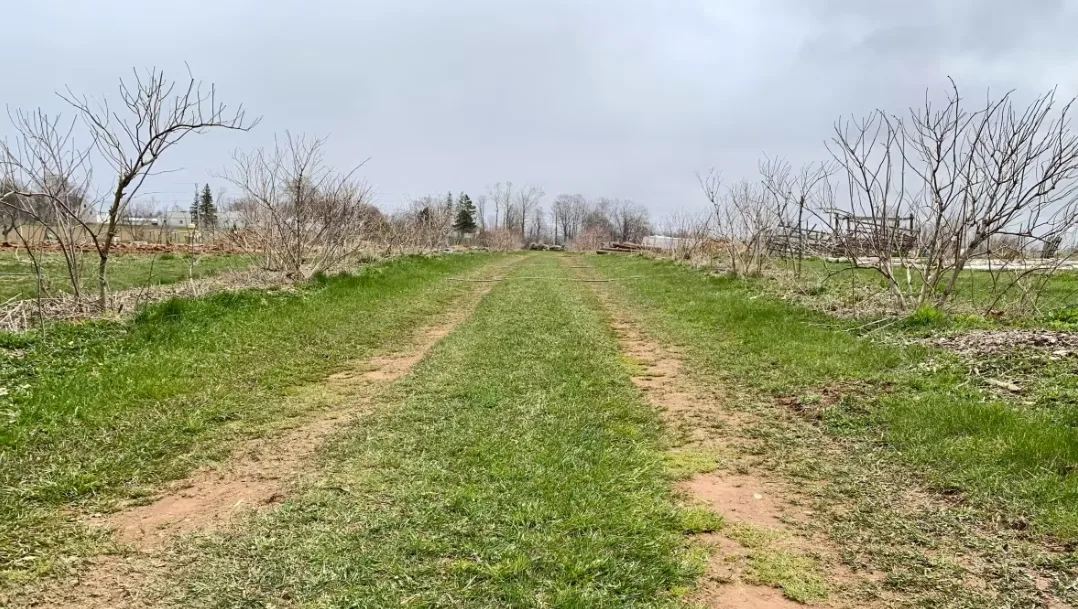
There are some roads in the Legacy Garden so people with mobility issues can drive in with their gear. (Maggie Brown/CBC)
Collett said they really want to make gardening and fresh produce available to everybody.
"For me and for the research and the science, gardening and working with plants is very therapeutic, and so everyone should have an opportunity to be able to experience that effect in their lives," she said.
"We run a therapeutic horticultural program here, where we bring people through different horticultural activities that are intended to have a therapeutic effect in their lives — whether that's physical, cognitive or just being able to socialize."
There are community gardens across the Island, and the P.E.I. Food Exchange has a list of them. You can find that list here.
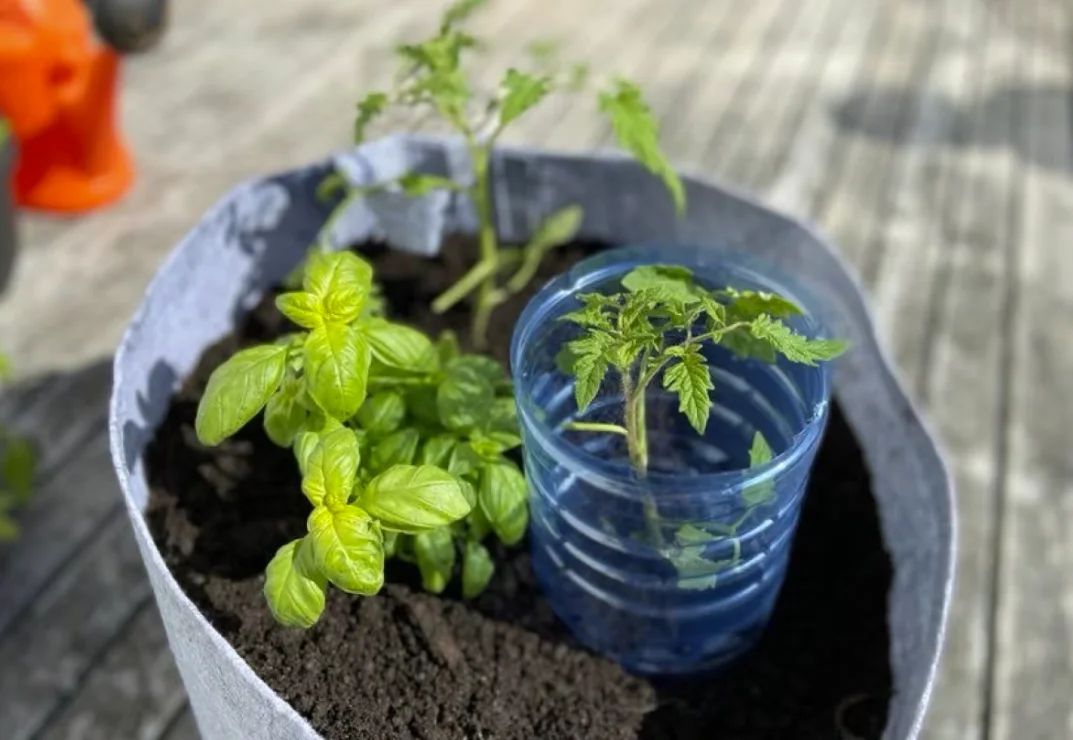
Pots and other containers can easily be moved inside if the weather isn't good. (Heidi Wood)
Anne Keuper, co-owns Island Pride Garden Co., which has locations in Wood Islands and Hunter River. Keuper has some ideas for people who have mobility issues.
"A couple reasons raised beds are nice: One, it controls the weeds. When the garden is right on the ground, you have to get down on your hands and knees to work it, which not everybody can comfortably do. So to work kind of at waist height, that's awesome," she said.
"And when we have a raised bed, we can only grow so much. Many of us put in a garden that becomes way too big and way too overwhelming to manage through the summer. So having some limitations is awesome."
Keuper said her husband, John, advises building raised beds with rot-resistant wood like hemlock, juniper or cedar and avoiding creosote and pressure-treated lumber.
Think climbing beans and planters
Keuper suggests people should also factor in their mobility issues when considering the kind of crops they want to grow.
"Another thing that's lovely if you're challenged physically bending over is, I love beans that climb ... Get some three- to four-foot poles and kind of make a teepee, and you plant your beans at the bottom and let them crawl up to the top and then you don't have to bend over as much to pick. And you could even use some Fiona debris."
SEE MORE: Get equipped for gardening season with this must-have tool list
Another thing any prospective gardener should consider is big pots or planters that can be moved.
"If you had a pot of tomatoes in a container and it was too chilly to leave them out overnight, you could bring them into your garage or closer to your building to protect them from frost," Keuper said.
"I'm thinking that those kinds of pots are also good for apartment dwellers who might just have a patio."
WATCH: How to select and plant your own tree this summer
Save money by saving seeds
If you are gardening on a patio, Keuper said it's important to make sure your plants are getting enough light.
"Often a patio may have some limitations in sunshine, so most vegetables want at least six hours of good sunshine. So you'd want to make sure to pay attention to what the light is on your patio, because there's nothing more depressing than having plants that don't do well."
And if you're looking to be thrifty, Keuper suggests saving seeds.
"Certainly collecting seeds ... You wouldn't have to buy containers so long as you put holes in something like an old milk carton or a plastic container that might have been a takeout food container."
Set reasonable expectations
Keuper recommends people to be realistic about how much time and energy they have for gardening as well.
But you should also take things easy.
"Do what feels good ... Gardens can be a little overwhelming and physically a burden. And then you often can give up and not do anything."
Thumbnial image courtesy of Pexels/Matteo Badini.
This article, written by Maggie Brown, was originally published for CBC News.








